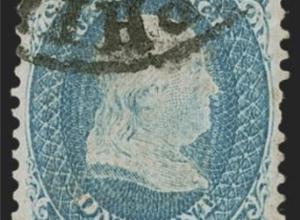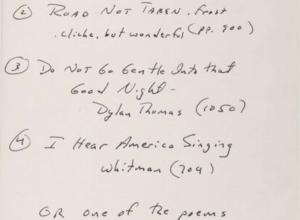July 2009 |
Market-Busting 90%-95% Sell-Through at Bloomsbury No Reserve Bibliophile Sale
In its first No Reserve Bibliophile Sale Bloomsbury-NY blew the roof off the house with an astonishing 90%-95% lot sell-through rate. The rare book auction market has not seen lot sell-through figures like that in more than twenty years.
As reported here earlier, "declining lot prices and percentage of lots sold [for rare books at auction] have hit a wall and splatted against the recession. Median prices, which had risen from $410 in October of 2006 to $485 n January of 2008 have dropped back and below to $400 'with no evidence to suggest the correction is over. Not so many decades ago auctions regularly sold 90% or more of lots offered. Over the last five years auctions have struggled to complete even 80% as the percentage of lots sold fell from 78% to 70%.'
In an immediate post-sale interview, James Cummins III, head of rare books at Bloomsbury-NY, said:
"I do not [yet] have a concrete figure for the sell through rate although I believe it to be around 90-95%. The sale brought in $94,421 with premium.
"The sale was conducted differently in a few ways. We didn't have any telephone bidding, there was no printed catalogue, lots that were unsold were bundled up and reoffered in groups and we were selling at nearly 200 lots an hour.
"We had quite a lively audience of approximately thirty-forty collectors and dealers in addition to absentee and online bidders. This sale was done as an experiment to see how the market would react to quality material being offered at no reserve. It proved to be very successful with many lots selling at higher prices than they had previously been offered at. We are very happy with the results of the sale and look forward to more no reserve sales in the future."
This sale and its results are a breath of fresh air to a business that has been struggling with change since the advent of the Internet opened up and democratized the rare book marketplace with buyers seizing control from sellers who have not been happy ceding it. The market has been under pressure for some time and the current recession has only increased that pressure for sellers to come to grips with reality and make downward price adjustments.
It is hoped that the other auction houses will follow suit. And, significantly, that individual dealers, to insure the health and continued viability of the business into the future, will follow and begin to lower their posted prices to welcome back wary book collectors and openly invite interested newcomers who may feel that current prices push the "gentle madness" of the hobby into a full-blown psychosis that few can afford.
_____
Coming Soon: Caveat Rare Book Emptor: The High Cost of Low Prices
As reported here earlier, "declining lot prices and percentage of lots sold [for rare books at auction] have hit a wall and splatted against the recession. Median prices, which had risen from $410 in October of 2006 to $485 n January of 2008 have dropped back and below to $400 'with no evidence to suggest the correction is over. Not so many decades ago auctions regularly sold 90% or more of lots offered. Over the last five years auctions have struggled to complete even 80% as the percentage of lots sold fell from 78% to 70%.'
In an immediate post-sale interview, James Cummins III, head of rare books at Bloomsbury-NY, said:
"I do not [yet] have a concrete figure for the sell through rate although I believe it to be around 90-95%. The sale brought in $94,421 with premium.
"The sale was conducted differently in a few ways. We didn't have any telephone bidding, there was no printed catalogue, lots that were unsold were bundled up and reoffered in groups and we were selling at nearly 200 lots an hour.
"We had quite a lively audience of approximately thirty-forty collectors and dealers in addition to absentee and online bidders. This sale was done as an experiment to see how the market would react to quality material being offered at no reserve. It proved to be very successful with many lots selling at higher prices than they had previously been offered at. We are very happy with the results of the sale and look forward to more no reserve sales in the future."
This sale and its results are a breath of fresh air to a business that has been struggling with change since the advent of the Internet opened up and democratized the rare book marketplace with buyers seizing control from sellers who have not been happy ceding it. The market has been under pressure for some time and the current recession has only increased that pressure for sellers to come to grips with reality and make downward price adjustments.
It is hoped that the other auction houses will follow suit. And, significantly, that individual dealers, to insure the health and continued viability of the business into the future, will follow and begin to lower their posted prices to welcome back wary book collectors and openly invite interested newcomers who may feel that current prices push the "gentle madness" of the hobby into a full-blown psychosis that few can afford.















